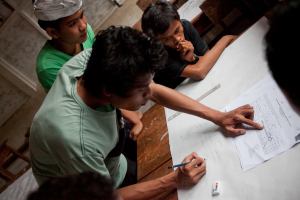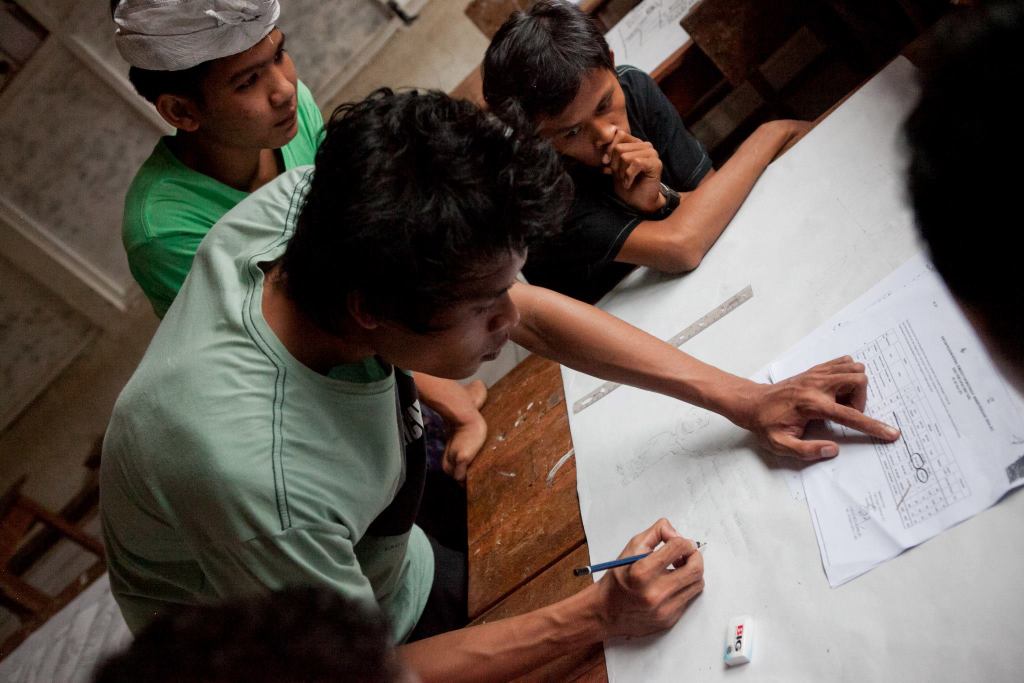Reflections on Four Years of Open Data
Posted on: December 18, 2014, by : samlee

It has been a pleasure working on “open data” at the World Bank the past four years. Open data brought together many of my professional and personal interests including data, technology, transparency, citizen engagement, social good, and innovation. In fact, despite experiencing both boundless potential and disappointing limitations, I am even more passionate about both “open” and “data” today as I was in 2011. Despite my bullish feelings, there are some lessons that I’ve learned along the way and ideas that I feel the industry and its diverse set of stakeholders must embrace in order to make good on the lofty (but still reachable!) promises of the “open” movement. Clear eyes are a great complement to a full heart. So here they are.
Go Deep & Wide (but in that order)
Like most concepts that heavily rely on digital technology and dissemination, the opportunity to scale broadly from inception is extremely enticing. Understandably, this allure is hard to ignore for the most ambitious among us. I also understand that choosing just one approach represents a false choice. It is of course optimal and possible to select both. I am just advocating here for a bit more initial focus on operationally-relevant “deep” activities versus a more symbolic “wide” opportunity. This could mean applying open data principles to a specific project rather than an entire global portfolio of activities. Deep could also mean going as local and granular as possible. This approach forces you to think about specific pain-points and address problems that open data can help resolve versus just selling broad long-term goals.
If you show success by demonstrating meaningful results in a deeper scenario, ideas and concepts will also scale naturally. It is just not advisable to start building a house from the roof-down. Can it be done? Yes, because nothing is impossible. Do you really want to do that though? If so, do you really have the time and resources?
Open Data + Open Process = Open Decision
Providing people raw data and information is great, but when coupled with decision-making criteria and the decisions themselves, it is an extremely powerful combination. As an example, I have long been impressed by the Millennium Challenge Corporation’s leadership in this area- see transparency around its Country Selection Process. The startup Buffer is also a great example of what real internal transparency looks like- see Open Salaries: Our Transparent Formula. I don’t think most organizations or people are ready for transparency like Buffer, but we could all certainly stand to apply a few more doses. Sharing data and knowledge is a great start. Sharing decision-making power is a revolutionary act.
Walking the Talk
Transparency’s power can only be fully captured if wielded as a double-edged sword. Understandably and naturally, the idea of opening someone else’s data is typically far more appealing than opening your own. Many transparency groups and civil society organizations that advocate for transparency balk at applying the same principles they are calling for; this seems like a flawed approach. Nothing strengthens a moral position quite like talking and walking the talk. Additionally, this also strengthens the advocate’s case by offering more personal insight into the specific pain points of transparency and solutions to alleviate them.
Digital Divide
Data’s worth and value should stem from its utility and ultimately use. We simply cannot ignore the fact that globally, 3 in 5 people do not have access to the internet in 2014. While this number is rapidly rising thanks to mobile technology, we must be realistic about the nature and impact of internet-based interventions in light of our target audiences. In the current environment, open data should be nested alongside broader digital literacy and capacity building activities. While this applies primarily to the developing world, even in Europe and the United States roughly 1 in 4 adults are offline. That is a lot of people without direct access to all the civic and social goodness being offered. Not everyone will be a power user of your data and there are of course other intermediaries that can help deliver information, but inclusiveness should be an unwavering priority.
Clearly, this is not a simple problem. I often re-visit and struggle with Emily Badger’s piece How the Internet Reinforces Inequality in the Real World, and I believe addressing, accounting, and minimizing this dynamic has great significance and implications not just for open data but for our entire world.
In closing, most of all I have appreciated the way open data has brought together many diverse perspectives and backgrounds. It is a community and a family that I hold dear.
Information, data, and knowledge want to be free, and I am glad to have had a small part in this revolutionary act.